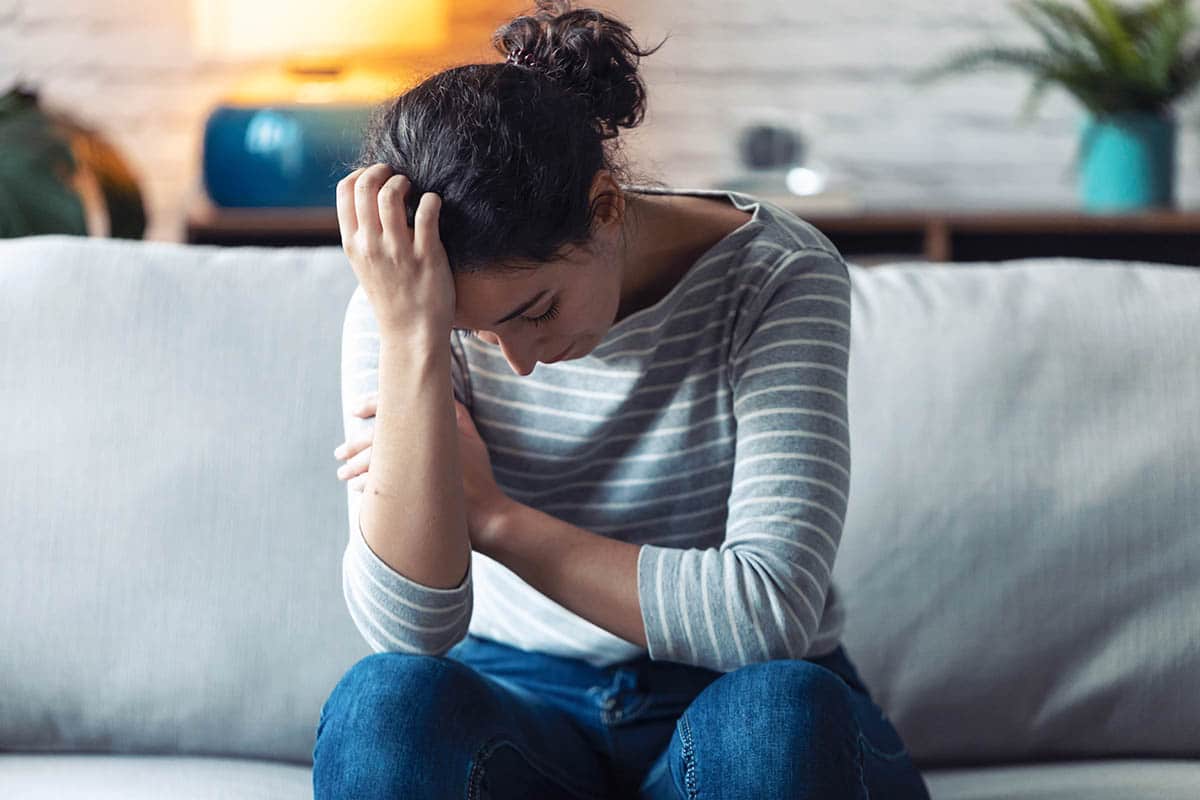Have you ever experienced unsettling dreams after a night of drinking? You’re not alone. The relationship between alcohol consumption and nightmares is more complex than you might think.
Many people turn to alcohol as a sleep aid, believing it helps them drift off faster. While that initial drowsy effect is real, alcohol’s impact on your sleep quality tells a different story. As the night progresses, your peaceful slumber can transform into a series of vivid, often disturbing dreams.
In this article, you’ll discover:
- Can Alcohol Cause Nightmares?
- How alcohol disrupts your natural sleep patterns
- The specific effects of binge drinking on dream intensity
- Practical strategies to maintain better sleep quality while drinking
- Signs that indicate when to seek professional help
Understanding the intricate relationship between alcohol and sleep can help you make informed decisions about your drinking habits. Whether you’re a casual drinker or someone concerned about alcohol’s effects on your sleep, this guide provides the insights you need for healthier sleep patterns.
However, if you’re finding it increasingly difficult to manage your drinking habits and it’s affecting your sleep quality, it may be time to consider seeking professional help. Contacting a private medical detox center could provide the support you need. Furthermore, understanding the potential impact of alcohol on your liver health is crucial. For residents in Massachusetts and New Hampshire, this guide offers valuable insights into what to expect when starting the detox process for liver health after alcohol use.
Understanding Nightmares and Their Causes
Nightmares are vivid, disturbing dreams that trigger intense feelings of fear, terror, distress, or anxiety. Research indicates that up to 85% of adults experience at least one nightmare per year, while 4-10% face weekly episodes.
Common triggers for nightmares include:
- Stress and anxiety
- Post-traumatic stress disorder (PTSD)
- Certain medications
- Sleep deprivation
- Medical conditions
- Eating close to bedtime
Night Terrors vs. Nightmares
Night terrors represent a more severe form of sleep disturbance, characterized by sudden arousal from sleep with intense fear and confusion. These episodes can last several minutes and often leave individuals with no memory of the event.
The Role of Emotional Dysregulation
Emotional dysregulation plays a significant role in nightmare frequency and intensity. Your brain processes emotional experiences during sleep, and any disruption to this natural process can lead to increased nightmare activity. This explains why individuals experiencing high stress levels or emotional turmoil report more frequent and intense nightmares.
The Impact of Alcohol on Nightmares
The relationship between drinking and nightmares becomes particularly relevant when considering how alcohol affects emotional processing during sleep. Alcohol can amplify existing emotional disturbances and create new ones, potentially increasing your susceptibility to nightmares.
The Science Behind Alcohol and Sleep
REM sleep is an important part of your sleep cycle where most dreaming happens. During this stage, your brain is very active, processing emotions, memories, and experiences from the day. REM sleep usually starts about 90 minutes after you fall asleep and occurs multiple times throughout the night.
How Alcohol Affects Your Sleep
When you consume alcohol, it acts as a sedative on your central nervous system. Here are some effects you might notice:
- Initial drowsiness: Alcohol can help you fall asleep faster
- Reduced sleep onset time: The time it takes to transition from being awake to asleep decreases
- Suppressed REM sleep: Your first few hours of sleep experience minimal REM activity
As your body breaks down the alcohol, these sedative effects wear off. This process triggers something called “REM rebound.”
Understanding REM Rebound
During REM rebound:
- Your brain tries to compensate for the REM sleep it missed earlier
- Dream intensity increases significantly
- You experience longer periods of REM sleep
- Dreams become more vivid and potentially disturbing
The strength of these effects depends on your blood alcohol levels. One drink might cause mild disruption, while heavy drinking can lead to significant changes in REM sleep. This disruption creates an imbalance in your natural sleep stages, resulting in intense and often unsettling dreams.
Alcohol’s Impact on Sleep Quality
Drinking disrupts your natural sleep patterns, causing a range of sleep-related problems that go beyond just vivid dreams and nightmares. Research shows that consuming alcohol before bed interrupts your sleep cycles, resulting in multiple awakenings throughout the night.
Increased Risk of Obstructive Sleep Apnea
Individuals who drink regularly have a higher risk of developing obstructive sleep apnea, a condition characterized by repeated stops and starts in breathing during sleep. Alcohol relaxes the throat muscles that keep your airways open, potentially leading to:
- Loud snoring
- Gasping for air during sleep
- Morning headaches
- Daytime fatigue
Interference with Body Temperature Regulation
Your restless sleep patterns after drinking are caused by alcohol interfering with your body’s natural temperature control. As your body breaks down alcohol, you may experience:
- Night sweats
- Tossing and turning
- Frequent trips to the bathroom
- Difficulty staying asleep
Diminished Restorative Value of Sleep
The quality of your sleep significantly decreases when you consume alcohol. While you may spend the same amount of time in bed, the restorative benefits of your sleep are reduced. Studies indicate that alcohol-induced sleep:
- Reduces deep sleep stages
- Increases light sleep periods
- Triggers more awakenings in the middle of the night
- Leaves you feeling unrefreshed despite a full night’s sleep
The Vicious Cycle of Poor Sleep and Increased Alcohol Use
These disruptions create a harmful cycle – poor sleep quality often leads to increased alcohol consumption as individuals try to self-medicate their sleep issues, perpetuating the pattern of disturbed sleep and drinking.
To break this cycle and improve both your sleep quality and overall health, it’s important to consider alcohol detox programs. Such programs can offer the necessary support and resources for individuals struggling with alcohol dependency. If you’re located in New Hampshire, Liberty Health Services provides top-rated addiction rehab services that focus on treating both drug and alcohol addiction with high success rates.
However, it’s crucial to understand that alcohol withdrawal can be dangerous if not properly managed. Seeking professional help from an accredited detox center is essential for safely navigating this process.
Binge Drinking and Nightmares
The CDC defines binge drinking as consuming 4 or more drinks within 2-3 hours for women, and 5 or more drinks for men. This pattern of drinking affects 1 in 6 American adults, with over 467 million episodes of binge drinking reported annually.
Research links binge drinking to intense, disturbing nightmares. Your brain attempts to process the flood of alcohol during sleep, creating vivid and often frightening dream scenarios. These nightmares can feel extremely real, leaving you disoriented and anxious upon waking.
A study published in the Journal of Sleep Research found that 39% of binge drinkers reported frequent nightmares, compared to 19% of moderate drinkers. Common nightmare themes include:
- Falling from heights
- Being chased
- Experiencing physical harm
- Feeling trapped or suffocated
- Reliving traumatic events
Many binge drinkers report a phenomenon called “the Sunday Scaries” – intense nightmares that occur after weekend drinking episodes. Sarah M., a recovered binge drinker, describes her experience: “Every Sunday night, I’d have these terrifying dreams. They felt so real that I’d wake up in cold sweats. It wasn’t until I stopped binge drinking that these nightmares disappeared.”
The intensity of alcohol-induced nightmares often correlates with the amount consumed. Higher blood alcohol concentrations lead to more severe sleep disruptions and increased likelihood of disturbing dreams.
Managing Alcohol Consumption for Better Sleep
Creating healthy drinking habits can significantly improve your sleep quality. Here’s how you can moderate your alcohol intake for better rest:
Set Clear Drinking Limits
- Stop drinking at least 3-4 hours before bedtime
- Track your drinks using a mobile app
- Alternate alcoholic beverages with water
- Choose drinks with lower alcohol content
Smart Drinking Strategies
- Measure your pour sizes to avoid overserving
- Eat a meal before drinking to slow alcohol absorption
- Set a specific drinking schedule (e.g., only on weekends)
- Keep non-alcoholic alternatives readily available
Sleep Hygiene Practices
- Create a consistent bedtime routine
- Set your bedroom temperature between 60-67°F (15-19°C)
- Use blackout curtains or an eye mask
- Remove electronic devices from your bedroom
- Practice relaxation techniques like deep breathing or meditation
Environmental Adjustments
- Install dimming lights to signal bedtime
- Use white noise machines to mask disturbances
- Invest in comfortable bedding
- Keep your bedroom clutter-free
These practices work best when combined. You might notice improved sleep quality within a few days of implementing these changes, but consistency is key for long-term benefits.
Seeking Help for Alcohol Addiction and Sleep Issues
Breaking the cycle of alcohol dependence and disrupted sleep requires professional support and guidance. When nightmares and sleep disturbances persist due to alcohol use, it’s crucial to recognize these symptoms as potential signs of addiction.
Signs you might need professional help:
- Inability to control alcohol consumption
- Experiencing withdrawal symptoms
- Persistent sleep issues and nightmares
- Using alcohol specifically to fall asleep
- Continued drinking despite negative consequences
Professional treatment programs offer comprehensive support for both alcohol addiction and related sleep disorders. Liberty Health Services provides specialized detox programs that address:
- Medical supervision during withdrawal
- Sleep pattern restoration
- Psychological support
- Customized treatment plans
- Aftercare planning
You can access help through multiple channels:
- Medical professionals: Your primary care physician can assess your condition
- Addiction specialists: Trained counselors who understand the connection between alcohol and sleep disorders
- Support groups: AA meetings and other community resources
- Treatment centers: Facilities offering structured programs for recovery
Remember: Sleep issues and nightmares often improve significantly once you address alcohol dependency. Professional treatment programs provide the tools and support needed to achieve lasting recovery and restore healthy sleep patterns.
If you’re wondering about your relationship with alcohol, you might find the information in this resource helpful: Am I An Alcoholic?, which provides insights into recognizing signs of alcoholism.
Additionally, if you’re considering seeking help, it’s essential to know where to find suitable facilities. Here’s a guide on where to find alcohol detox centers in New Hampshire that could assist you in your journey towards recovery.
For more information about what to do when looking for alcohol and drug detox, this article on what steps to take when seeking detox will be beneficial.
Contact Liberty Health Services to learn more about our specialized detox programs and start your journey toward better sleep and sobriety.


